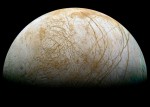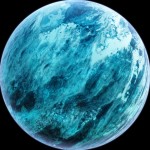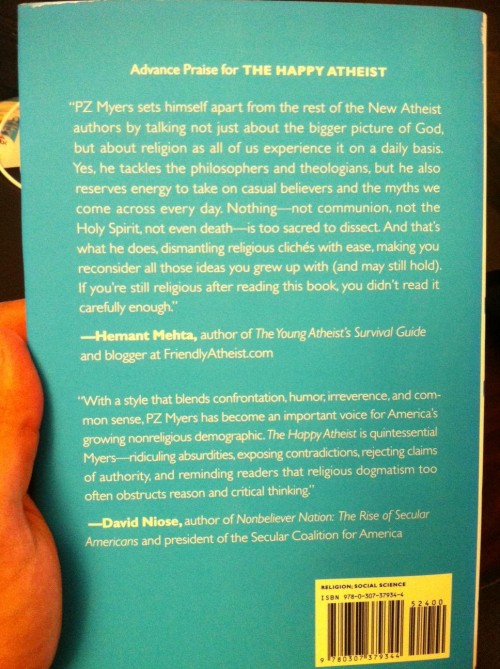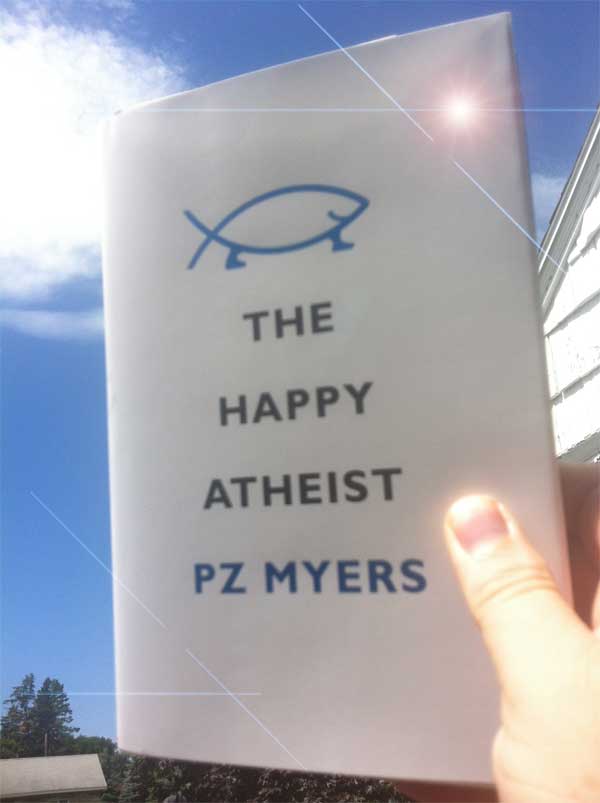Because that’s what we are and where we come from — and every cell contains a little ocean…a hot little ocean rich with complex contaminants and lovely energetic cascades. So I’ll share two wonderfully appropriate examples today.
Tonight at 8pm ET Jennifer Ouellette talks with JPL planetary scientist Kevin Hand about the new film Europa Report and astrobiology. You’ve all seen it, right? It’s a new independent movie that mostly gets the science right, with a scientific crew sent off on a long voyage to Europa to find out what’s going on in the gigantic deep ocean beneath the icy crust. Then it turns into a bit of a horror movie when they do find out. There were a few things that made me go “huh?” — why is the first major manned mission after decades of neglect going all the way to Jupiter? They seem to have an awfully easy time punching through an ice crust that has to be at least several kilometers thick. And shouldn’t the surface of Europa be as inimical to its deep-sea life as the surface of the moon would be to ours? — but I managed to suspend disbelief for most of it, which is a good sign for me, arch-nitpicky-nerd that I am.
You should listen in, it could be interesting. Or watch the movie, it is on iTunes.
The other thing is that while idling in Minneapolis yesterday I read Neptune’s Brood by Charles Stross. It had a wonderfully intricate plot about interstellar banking (!) but there were a couple of sciencey bits that tickled me.
One is that the characters are all “robots” — humanity is extinct, we purely biological organisms are called “Fragiles”, and our cultural descendants are all engineered. They defy our usual conventions about robots, though. They’re made of cells called mechanocytes, larger and more elaborate than our cells, but with similar properties of managing thermodynamic flows and forming structural elements. I approve. I think life is always going to be a compromise between rigid durability and flexible plasticity, and modular subunits is always going to be the best way to go for allowing repair and remodeling. So despite being machines, these beings have all the properties of human beings and so can be relatable protagonists.
It also makes them far more malleable. Brain functions are entirely modular and stored discretely in a way that allows them to be maintained independently of the body, so one way to do interstellar travel is to transmit your software at the speed of light to a distant star, where a new body of mechanocytes can be assembled. This requires building an infrastructure at the other end, of course, which can only be done by sending machines at some small fraction of the speed of light to the target first, which is why the story is all about interstellar banking — it turns out that you need a stable way to maintain debt over centuries, and interesting protocols to transfer capital between multiple star systems most of whose inhabitants will never physically meet.
Anyway, the oceanic part: a lot of the action takes place on a water world called Shin-Tethys (Stross on world building). People adapted by engineering new bodies, so many of the near-surface inhabitants are mer-people. Meh. Who wants to have a compromise physiology? But the cool thing is that the robot-people who live very, very deeply and mine dissolved radioactive minerals are…squid-people. Yes, my utopia has a fictional existence. Furthermore, these are altruistic collectivist squid people. Squid people with a plan.
“…we plan to establish a world completely free of money, a world populated by a new teuthidian humanity, with a society based on consensus, not debt, and respect for collective autonomy, not competitive commerce. A world where the word ‘free’ will not be needed because nothing will cost anything and everything will be attainable!” Her skin shone with the pearly luster of her enthusiasm for the radiant future of the communist squid-nation: “I’m going to bring about the Jubilee! For the squid-folk, anyway.”
Wow. I thought I was the only one who had those dreams.
Recommended. Read a book, watch a movie, or listen to an interview tonight, your choice.






